Slow Food Conference 2020 Offers Virtual Seminars
(Gerry Furth-Sides, content and photos provided by Slow Food Conference 2020) The ongoing health crisis has refocused everyone’s attention on the central role of food and the importance of the food chain, in all countries around the world.
On World Food Day, it is necessary more than ever to think about the food system, food production, food distribution and methods of consumption – globally, and also individually.
The Slow Food network engaged in the discussion and shared it by way of successive online events they offer online for viewing for six months on the Terra Madre Salone del Gusto 2020 platform. In addition to the online events, many physical events will take place around the world. To find out more, click here.
This reflection is absolutely necessary, in view of the scale of the health, environmental, economic, social and, specifically, food emergency. But Covid-19 can and must also be an extraordinary opportunity to open our eyes and find solutions: to the climate and environmental crisis; to the economic crisis caused by a development model based on unsustainable, endless growth; to social injustice and to unequal distribution of wealth; to large sections of the population being denied their fundamental rights; to the migrant crisis, and so on.
Nourishing the Terra Madre network around the world, by bringing together delegates, members and activists around the most important Slow Food projects, and maintaining a high level of public awareness around these issues is the objective of Terra Madre Salone del Gusto in the time of Covid.
The first few days after the start of the event confirmed that the intuition of the organizers – Slow Food, the Piedmont Region and the City of Turin – who accepted the challenge of holding an event that has been revolutionized in terms of times, locations and formats, was right.
One of the most significant contributions published in the last few days is the video talk by Fritijof Capra, an Austrian physicist, economist and writer, who opened the Food Talks series with an analysis of Covid-19: “The coronavirus must be seen as a biological response of Gaia, our living planet, to the ecological and social emergency that humanity has brought upon itself. It arose from an ecological imbalance and it has dramatic consequences because of social and economic imbalances. […] Ethical behavior, which means behavior for the common good, becomes an issue of life and death in a pandemic. Because a pandemic like Covid-19 can only be overcome by collective, cooperative actions.”
There has been no shortage of stories and suggestions from the Slow Food network: “I live in India, I work in India and in my world we can see the impact of climate change happening in our lives. It is affecting the poorest, it is affecting the most marginalized. Let’s be very clear: if the poor are the victims of climate change today, the rich will also be victims of climate change tomorrow” pointed out Sunita Narain, an Indian environmentalist and activist, and Director General of the Center for Science and Environment, who participated in the Asian episode of the global relay.
“We have to urgently rethink this model of society, because everyone agrees that the best, most nutritious dish is the one that’s rich in variety and color. But the same logic isn’t applied on a social level. And we are afraid of monoculture. And “monoculturization”. Because any type of monoculture kills” stressed Célia Xakriabá, indigenous leader of the Xakriabá people, speaking from Brazil in the South American episode.
“Since the beginning of civilization, food has always been thought of as precious and, all of a sudden, it’s not anymore. Food should be cheap and it should be easy to eat. And so this is the starting point of our Slow Food revolution, food that regains value and is built on the values of stewardship, nourishment, equality and diversity. There’s no better place than the public school system” said Alice Waters, an American cook and author, and a food education activist, during the North American episode.

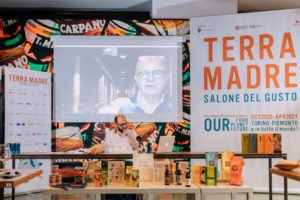
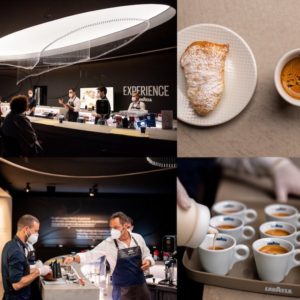
 Gerry Furth-Sides
Gerry Furth-Sides 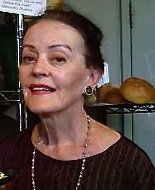 Barbara Hansen
Barbara Hansen 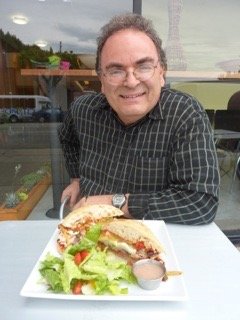 Chef-owner Alain Cohen
Chef-owner Alain Cohen  Roberta Deen
Roberta Deen 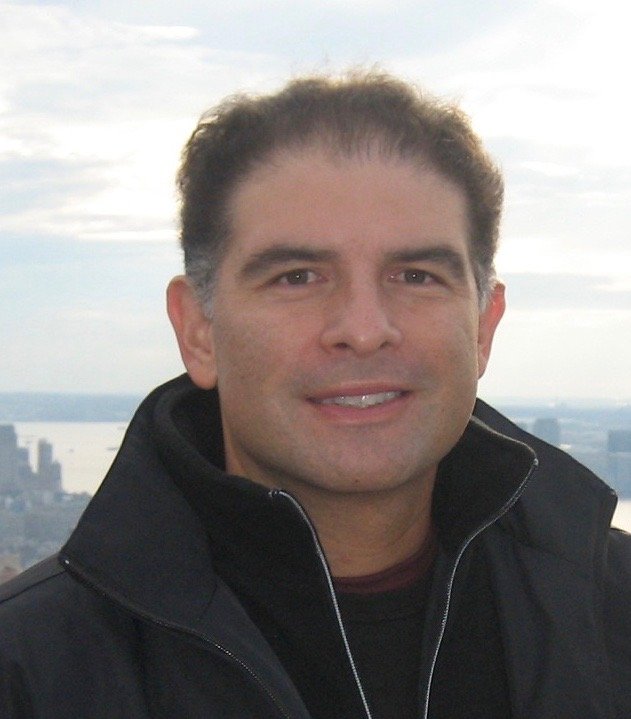 Jose Martinez
Jose Martinez  Nivedita Basu
Nivedita Basu